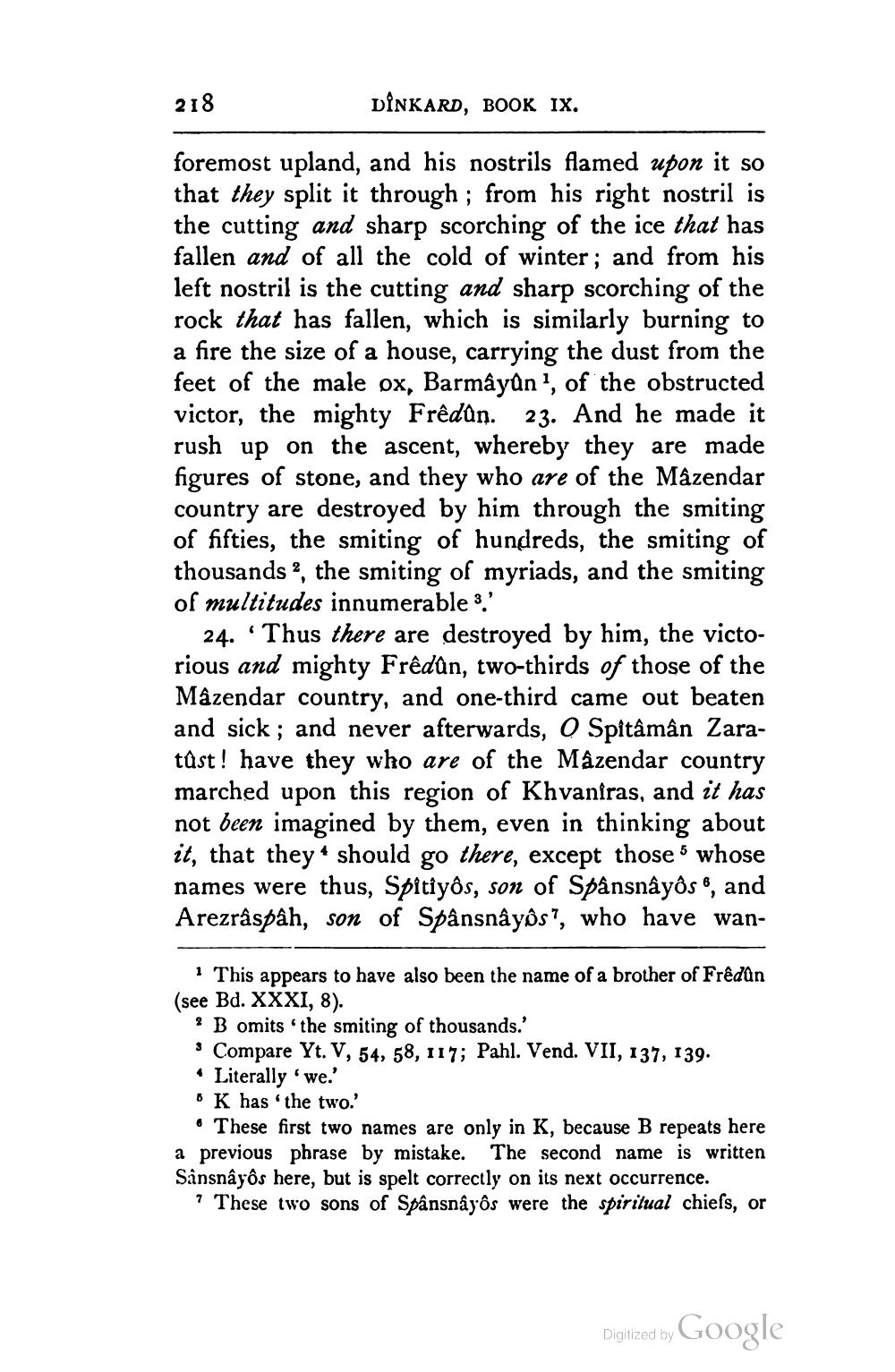________________
DINKARD, BOOK IX.
foremost upland, and his nostrils flamed upon it so that they split it through; from his right nostril is the cutting and sharp scorching of the ice that has fallen and of all the cold of winter; and from his left nostril is the cutting and sharp scorching of the rock that has fallen, which is similarly burning to a fire the size of a house, carrying the dust from the feet of the male ox, Barmâyûn 1, of the obstructed victor, the mighty Frêdûn. 23. And he made it rush up on the ascent, whereby they are made figures of stone, and they who are of the Mâzendar country are destroyed by him through the smiting of fifties, the smiting of hundreds, the smiting of thousands 2, the smiting of myriads, and the smiting of multitudes innumerable 3.'
218
24. Thus there are destroyed by him, the victorious and mighty Frêdûn, two-thirds of those of the Mâzendar country, and one-third came out beaten and sick; and never afterwards, O Spîtâmân Zaratûst! have they who are of the Mâzendar country marched upon this region of Khvaniras, and it has not been imagined by them, even in thinking about it, that they should go there, except those whose names were thus, Spitiyôs, son of Spânsnâyôs ®, and Arezrâspâh, son of Spânsnâyôs", who have wan
4
1 This appears to have also been the name of a brother of Frêdûn (see Bd. XXXI, 8).
2 B omits the smiting of thousands.'
' Compare Yt. V, 54, 58, 117; Pahl. Vend. VII, 137, 139.
⚫ Literally 'we.'
K has 'the two.'
These first two names are only in K, because B repeats here a previous phrase by mistake. The second name is written Sânsnâyôs here, but is spelt correctly on its next occurrence.
7 These two sons of Spânsnâyôs were the spiritual chiefs, or
Digitized by
Google




